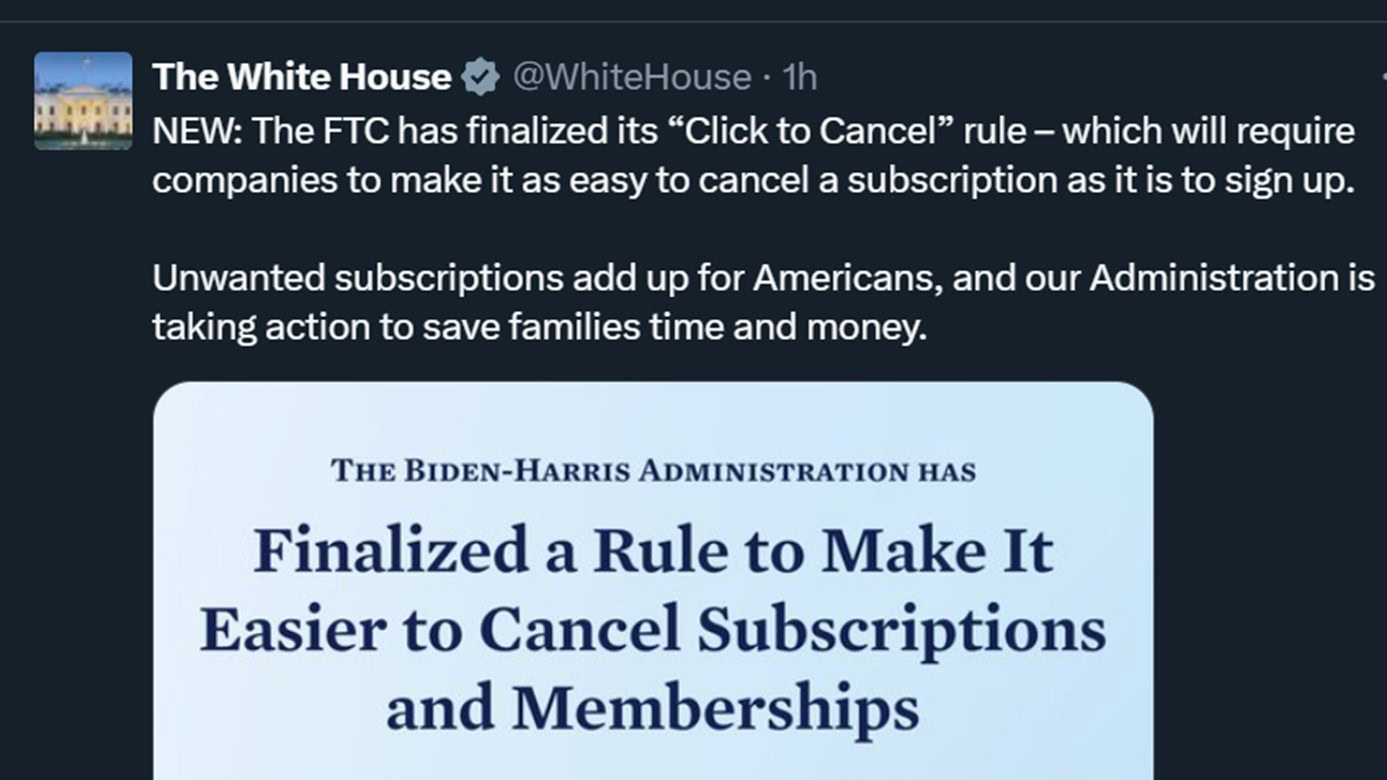Nick Fernandez / Android Authority
Pixel 9 official case
TL;DR
- FTC’s new click-to-cancel rule will ensure canceling subscriptions is as easy as signing up.
- The rule targets deceptive subscription practices and applies to renewals, free trials, and continuity plans.
- Businesses will have 180 days to comply or face a fine.
Sneaky tricks used to keep you locked in to that streaming service plan may be about to lose their bite. Following in the footsteps of Californian lawmakers last month, the US Federal Trade Commission (FTC) has finally announced a federal click-to-cancel rule. The new directive aims to put an end to the frustrating experiences many consumers face when trying to cancel subscriptions.
The regulation is part of a more sweeping rule now officially known as the Rule Concerning Recurring Subscriptions and Other Negative Option Programs (just rolls right off the tongue), the FTC shared Wednesday morning (via The Verge).
Under the click-to-cancel part of the legislation, businesses must provide an equally straightforward method for canceling subscriptions as they do for sign-ups. For instance, if customers enroll in a service online, they should be able to cancel it online, too, without the need for additional steps like calling customer service or interacting with a live agent. The goal is to remove unnecessary barriers that are often designed to discourage consumers from canceling.

The rule applies to a wide range of subscription types, including gym memberships, streaming services, and continuity plans. Even free trials that automatically renew will be covered, ensuring unexpected charges don’t catch consumers off-guard if they can’t cancel in time.
Aside from the click-to-cancel requirement, the FTC also mandates that companies clearly disclose all terms before customers sign up. This includes important details like how often payments will occur, when free trials end, and exactly how to cancel the service. Consent must be properly obtained, with businesses needing to provide proof that consumers agreed to the subscription terms.
The broader rule goes on to address misleading advertising practices and provides other protections against deceptive negative option marketing. Most parts of the rule will go into effect 180 days after publication, giving businesses time to comply and avoid potential penalties.
Got a tip? Talk to us! Email our staff at [email protected]. You can stay anonymous or get credit for the info, it's your choice.







 English (US) ·
English (US) ·